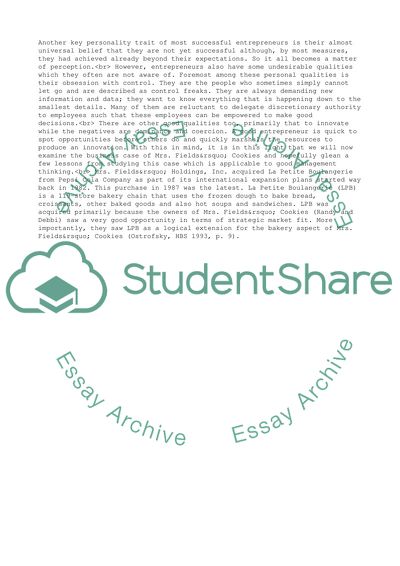Cite this document
(Mrs. Fields Case Description Assignment Example | Topics and Well Written Essays - 1750 words, n.d.)
Mrs. Fields Case Description Assignment Example | Topics and Well Written Essays - 1750 words. Retrieved from https://studentshare.org/business/1732775-mrs-fields-case
Mrs. Fields Case Description Assignment Example | Topics and Well Written Essays - 1750 words. Retrieved from https://studentshare.org/business/1732775-mrs-fields-case
(Mrs. Fields Case Description Assignment Example | Topics and Well Written Essays - 1750 Words)
Mrs. Fields Case Description Assignment Example | Topics and Well Written Essays - 1750 Words. https://studentshare.org/business/1732775-mrs-fields-case.
Mrs. Fields Case Description Assignment Example | Topics and Well Written Essays - 1750 Words. https://studentshare.org/business/1732775-mrs-fields-case.
“Mrs. Fields Case Description Assignment Example | Topics and Well Written Essays - 1750 Words”, n.d. https://studentshare.org/business/1732775-mrs-fields-case.


